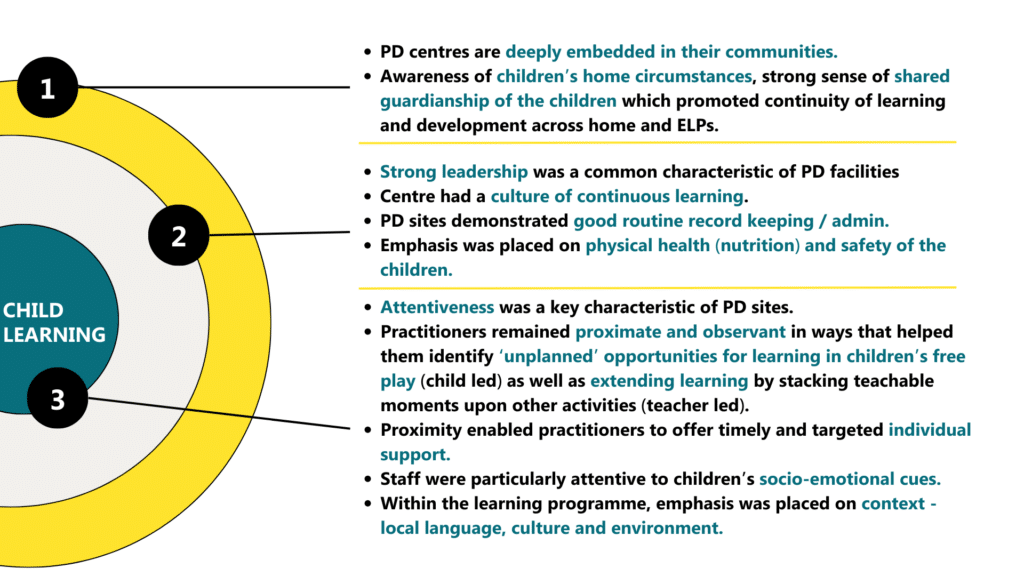Why do some children thrive and outperform their peers despite their poorer socio-economic circumstances? DataDrive2030’s Positive Deviance Initiative (PDI) has sought to identify the factors associated with exceptional early learning outcomes for children from lower socio-economic backgrounds, whom we refer to as “positive deviants”. Our goal is to find ways to leverage these factors at scale and design cost-effective interventions that bridge the outcome gap across the inequality spectrum.
The first phase of the PDI was quantitative research which uncovered factors most highly correlated with positive deviance in individual children, ECD centres, and homes. Our quantitative report mapped these factors and behaviours, which included high socio-emotional functioning for individual children as well as high levels of engagement with ECD practitioners and caregivers at ECD centres and homes respectively.
The second phase of the PDI undertook a qualitative investigation to understand the deeper reasons and mechanisms for specific factors emerging as particularly important and novel.
The diagram below shows behavioural themes identified at various levels in terms of proximity to child learning: (1) community, (2) leadership and organisational structure, and (3) pedagogical practices.

Since publishing the outcomes of our quantitative and qualitative findings, we have focused on behavioural factors that can be influenced through an intervention. Specifically, we want to understand how to enhance practitioner attentiveness to opportune learning moments and nudge them to implement more meaningful multi-turn conversations with children.
These warm and connected conversations centre on the child’s interests in that moment and can be seen as the “first stage” in one’s ability to effectively extend learning. In simple terms, extending learning implies stretching a child’s learning through play, conversation and open-ended questions. We know that ECD practitioners who are adept at encouraging extended learning through meaningful multi-turn conversations have the following skills:
- They are attentive and attuned to a child’s interests.
- They connect directly with children through both active listening and the ability to respond with open-ended questions.
- They step out of the authoritative perspective and allow the child to lead.
- They bring flexibility beyond a predefined script and can apply a pedagogical practice beyond how it has been taught.
Extended learning requires the continuous adaptation of teaching content to the activity or the physical space – be it the classroom, the playground, or another location. Beyond capabilities, we also want to explore whether practitioners have the motivation and opportunity to extend learning. As a next step, we will explore these aspects further and refine our framing of possible interventions in our next PDI update.
All knowledge materials published under the first two phases of the PDI can be accessed here. Please direct any questions about this work to hello@datadrive2030.co.za.
